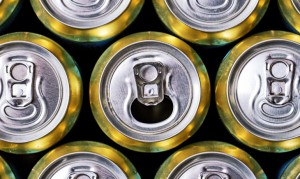
A single drink can affect the driving ability of older drivers, according to new research that suggests it may be time to reassess legal blood alcohol levels.
Researchers tested how drinking legally non-intoxicating levels of alcohol affect the driving skills of two age groups: 36 people ages 25 to 35 and 36 people ages 55 to 70. Although neither age group imbibed enough alcohol to put them over the legal driving limit, a blood alcohol level of 0.08, just one drink can affect the driving abilities of older drivers.
“These simulations have been used a lot in looking at older adults, and they have been used at looking how alcohol affects the driving of younger adults, but no one’s ever looked at the combination of aging drivers and alcohol,” says Alfredo Sklar, a doctoral candidate working with Sara Jo Nixon, professor in the departments of psychiatry and psychology at the University of Florida.
Published in the journal Psychopharmacology,the study is the latest in a body of work by Nixon and colleagues that looks at how even moderate doses of alcohol affect aging adults.
At the beginning of the study, both groups completed a driving task completely sober. The task took the drivers down a simulated winding 3-mile stretch of country road. The drivers stared straight ahead at a large computer monitor. Two computer monitors flanked the first, mimicking the side windows of a car and what the drivers would see in their peripheral vision. A stereo system played driving sounds. A console included a steering wheel and brake and gas pedals. Occasionally, the drivers would encounter an oncoming car, but they did not encounter other distractions.
Researchers then assessed the drivers’ ability to stay in the center of their lane and maintain a constant speed. They also looked at how rapidly they adjusted their steering wheel.
LEGAL LEVELS OF INTOXICATION
On a later day, the groups were further separated into groups. The first imbibed a placebo—a diet lemon-lime soda misted with a negligible amount of alcohol to mimic the experience of drinking alcohol. A second group’s drink was strong enough to produce a 0.04 percent breath alcohol level, and a third group’s drink gave them a breath alcohol level of 0.065 percent—still below the federal legal level for drinking of 0.08.
Participants then completed the same driving task they performed when they were sober. Researchers timed the task so participants’ alcohol levels were declining to mimic a situation in which individuals have a drink with dinner and then drive home.
In younger adults, alcohol consumption did not affect their measured driving skills at all—a finding Nixon called a “bit surprising.” She warns that the absence of effects in this laboratory setting does not mean that young adult drivers’ driving wouldn’t be affected in normal circumstances, driving in a typical, real-world setting. The laboratory setting was simplified compared with real-world driving and that the current data don’t address potential problems in more complex settings.
But for the older drivers, the small, legal levels of intoxication had an effect.
The researchers are evaluating additional study results. Participants also drove a course through small-town and city settings, complete with pedestrians, motorists who violated traffic signs, and other challenges.
Sklar and others in the laboratory will examine brain electrophysiological data collected through scalp electrodes embedded in caps that the subjects were wearing during the drive to study how the brain responds during the driving test when dosed with alcohol.
Source: University of Florida




